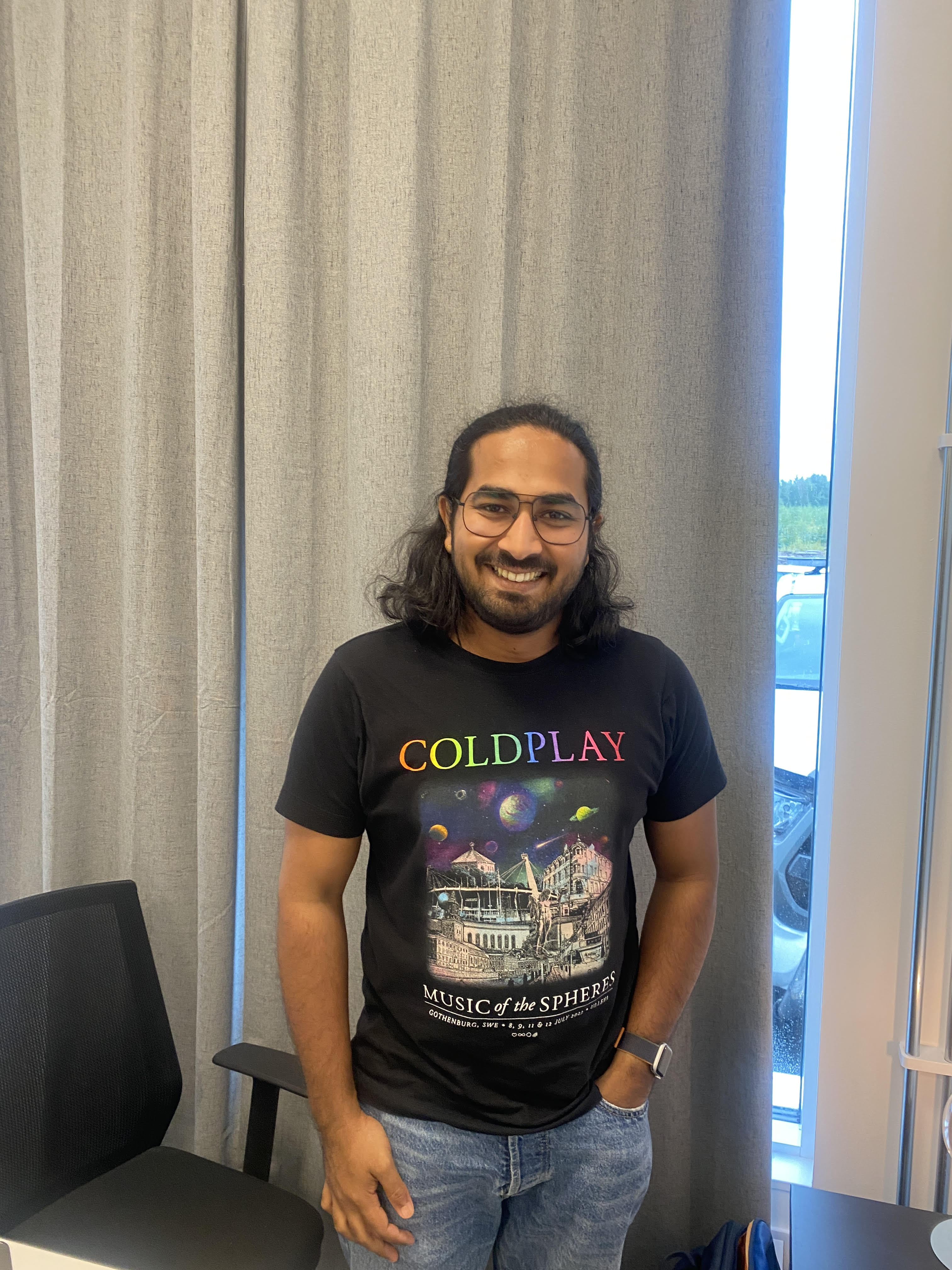Who are you, and what are you doing here at Flasheye?
My name is Rohith Sarma, I’m currently finishing up my Master’s thesis on Machine Learning whilst working on our new classification system for our new AI/ML department!
We’ve started with classification, as the tracking was already implemented. My colleague Sebastian is just finishing up a rule-based classification for the objects that are being tracked. This is the very first step in our journey as our Machine Learning department is fairly new, but I’m super excited to explore the things we have in the pipeline!
Point cloud-based Machine Learning research is nowhere near as developed as image-based, so it's very fertile ground for new developments.
You and I are both relatively new to this country. I’m from the U.K., which isn’t so far from Sweden compared to where you came from. Can you share a little about how and why you ended up here in Luleå?
I’m actually from the South of India, very close to Sri Lanka, in fact. That’s where I did my bachelor’s degree in computer science before working for 3 years for Bosch as a software engineer. Of course, at a company of that scale, it was difficult to receive feedback for my work through its direct impact on society.
So I sought a place outside of my native country to study for a Master's degree in Machine Learning and ended up at KTH. Moving to Stockholm was actually my first time leaving India too! But I was very fortunate to have a diverse and welcoming student accommodation.
What cultural differences or similarities have you noticed professionally and in daily life between your home country and Sweden professionally?
I’d say, in the professional sense, India is more similar to the American model of working, where it’s a sort of non-stop hustle kind of thing. Sweden is the opposite of that, it’s so relaxed, and I love it. Even though Flasheye is a start-up, it feels like an established company with how quietly focused the atmosphere is. Start-ups can be quite hectic and stressful, but I’ve never felt that here.
The obvious cultural difference in daily life though would 100% be the food, though, of course! The Swedish cuisine of boiled potatoes and fermented fish is almost the direct opposite of the Indian cuisine which uses a lot of seasonings and aromas. Thankfully we have a couple of ethnic food stores where I can get the raw materials I need, like basmati rice and spices and things.
Have you encountered any particular language or communication challenges while working with colleagues from different cultural backgrounds?
Working here at Flasheye is quite similar to my experience at KTH in the sense that it’s pretty international here, also. We have English, Polish, Finnish and Asian people working in this small northern Swedish town which is pretty special. I haven’t been in Sweden for so long, so my Swedish isn’t great yet, but we’re speaking English here almost all the time, so it’s actually very comfortable.
I’m super thankful that everybody here is so easy to collaborate with and talk to. It’s not a stuffy office environment; we hear a fun conversation or a laugh or two every day here; it’s a blessing.
If you could share one thing about India and its culture that you wish people knew more about, what would it be?
I think we’ll have to go back to food again because I think there is a big misconception about what Indian food is. I’ve noticed a lot of restaurants outside of India serve almost exclusively Northern Indian food, your Chicken Tikka Masalas and Butter Chickens for example. In the South, where I’m from, there is a very different style of cooking. We use a lot of coconut and cook a lot with coconut oil for example so if one was to do a blind-tasting they would probably think Southern Indian food is actually Thai. In India, there isn’t even a word for curry!
So the idea of what “Indian food” is to a lot of people doesn’t show the whole picture. It’s actually a very diverse cuisine that reflects a very diverse country and people. As we said before, food is a cornerstone of culture!

